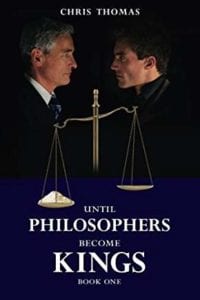
About the Book:
They call him El Condor de Muerte—the Condor of Death—but few know the true identity of Mexico’s most powerful cartel leader nor the extent of his power and influence. Fewer still are privy to his plans for the future of Mexico, and the destructive drug trade.
Undercover DEA agent Ray Cruz has spent months in a maximum-security federal prison, slowly earning the trust of a drug kingpin known as Carlo. When the DEA arranges an “escape” for Ray and Carlo, the young agent discovers that Carlo holds a high rank in the Condor’s well-organized and powerful cartel—an organization unknown to both Mexican and US authorities.
To hide so powerful an organization from the authorities in both nations requires exceptional influence in Mexican politics, and Ray quickly realizes the Condor’s talons dig deep into the highest echelons of power. At the same time, he discovers the Condor’s vision for the future of the cartels and Mexico—a vision the DEA agent finds unsettlingly appealing.
A tale of evil arising from the best of intentions, Until Philosophers Become Kings explores the gray and blurred lines of morality. No one knows what they’re capable of until their hand is forced.
Read an Excerpt:
Featured in Dec/Jan 2017 Issue: 2016 Best Indie Book Competition Winners
It was near six and his head snapped up; he had been dozing, for how long he wasn’t sure. He was sitting at his writing table, loose papers and scribbled notes everywhere; nothing but deep thoughts, terrible thoughts, penned in a fit of self pity around three. The subcompact Glock 29 that Raul had given him as a graduation gift from law school years before was still there, lying on the corner of the desk. Raul had intended the gift as personal protection, the last line of defense in an unsafe world. Instead, ironically, it had dangerously become the opposite as he imagined that it had spoken to him at four, I am your only friend, and I can stop the pain and end this nightmare.
He spent the better part of the dark and terrible night staring at the Glock, his thoughts as cold and black as the steel it was made from. Memories of his mother finally silenced the black thoughts as he held the handgun pressed against his temple, and the safety was reset, the terrible cold object set aside, to be returned to the closet where it had sat undisturbed for years. The remaining night and coming dawn were spent in an examination of other hard truths. In the end, one such realized truth was he did not want to die, but neither did he know how to live.
In his struggle to see his way forward, just as the sun started to make its appearance through the delicate decorative filigree of the antique cotton drapes of his bedroom windows, it was a thought from Burke, not Plato, remembered from his studies years ago, that came to him; “All that is necessary for evil to succeed is for good people to do nothing.”
He had to choose. It was one or the other, good or evil, no matter how hard that once simple choice had surprisingly become for him, for good now had more than one meaning to him, black and white now less clear, obscured by shades of gray he had never contemplated.
